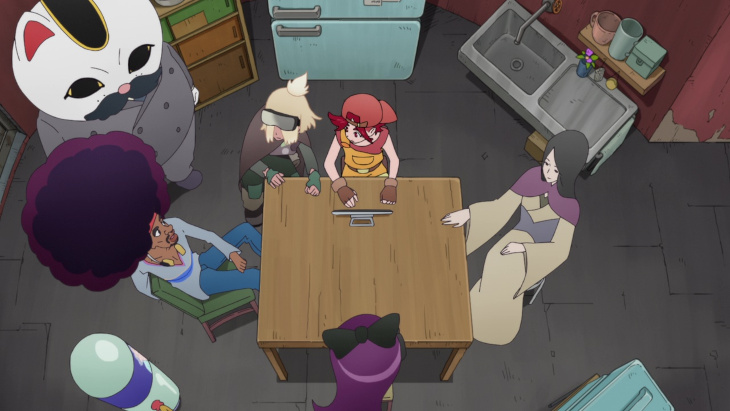
“You want to know about the Yurei Detective Club, right? It all happened a year ago, but looking back, it feels more like something out of an adventure story.”
Back when the season began, I specifically made sure to temper my review of Yurei Deco’s premiere due to it possessing such a potent blend of quirky and mysterious qualities that it was difficult to approach it with any sense of long-term confidence. Plus, the sense of uncertainty caused by its eclectic presentation was further exacerbated by the knowledge that Listeners, which had been helmed by a member of Yurei Deco’s creative team, had also begun with some quirky and mysterious ideas, but had devolved into a miserable slog. Some of these concerns came to pass, given that the season suffers from a bizarrely paced and truncated conclusion, which certainly seems reminiscent of Listener’s scattered mess of a finale. Fortunately, having reached the end of this odd road, I can say that while Yurei Deco may share a sizable number of Listener’s flaws, they fortunately don’t prove as disastrous to the overall viewing experience. I don’t think I can offer a recommendation for Yurei Deco, but for anyone interested in uniquely styled series or in the works of Science SARU, it might be worth a glance, though shows like Ping Pong the Animation or Keep Your Hands Off Eizouken! should undoubtedly take priority.
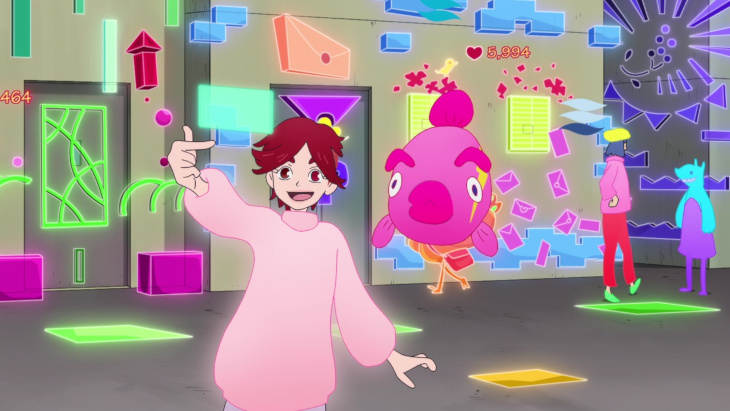
The show follows a girl named Berry, who lives on the island of Tom Sawyer, where everyone collects the currency of “Love” through their social interactions and various daily activities. Citizens of Tom Sawyer have optical implants referred to as Decos, which permit them to see a holographic UI filter that is implemented throughout the city. However, when Berry’s Deco becomes damaged, she begins to see elements hidden under the UI, including a peculiar individual named Hack, who is a Yurei, a “ghost” who has no identity within the city’s systems. When Berry’s involvement culminates in her being hunted by the island’s Customer Center, she is forced to say goodbye to her identity as well, and join forces with Hack and the Yurei Detective Agency. Together, the group uses their status as “ghosts” and hackers to investigate strange occurrences within the island’s systems. As a premise and foundation that’s a pretty solid core concept to build a show around, even if it isn’t straying too far into new territory. If I were to highlight two elements that prevent the Yurei Deco from capitalizing on its ideas, the first would be that the show doesn’t grant a firm enough understanding of the systems that govern the world. As an example, I initially thought Love worked like normal currency. It can be used for some purchases, but it’s unclear whether those purchases are solely cosmetic. It seems like such a fundamental concept should have clearly established rules. The second issue is that the show is a bit too bright and happy to genuinely dive into the darker elements of a social media-run city, even though they beg to be explored. The end result of these limitations is a show with a great concept that never succeeds in diving past the surface level.
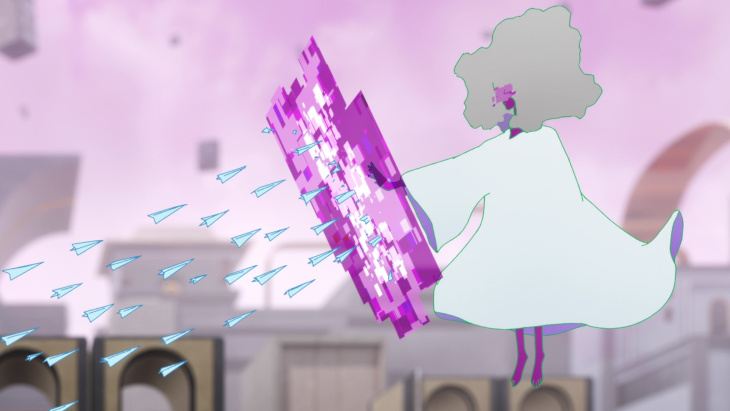
The characters are pretty diverse and fun, but much like the world itself, the series doesn’t explore them that much. With most of the characters, you walk away from the series with roughly the same understanding of them as when they were first introduced to you. A few of the primary leads get some emotional exploration in the final stretch of the season, but the rest of the cast are defined solely by a single quirk: Hank likes building, Smiley likes earning Love, etc. So the group as a whole feels pretty shallow, but it doesn’t detract too heavily from most of the episodes, and while I had some reservations about Hack’s overly eccentric mannerisms early on, she never annoyed me to the point that it was a problem. However, if there was one element of this show that truly fell flat, it was the ending. The final stretch threw narrative and tonal consistency right out the window. One episode would end with our leads getting caught up in an argument on the streets, and next thing you know, things have escalated into a city-wide chase, and the plot point that initiated the conflict is tossed by the wayside. The narrative of the final few episodes has the vibe of a plot that knows where it needs the characters to go in order to set up the ending, but doesn’t have any idea how to move them there effectively. This culminates in a climax which ends abruptly and throws viewers into an ending montage with little to no warning. There seems to have been a trend of mediocre endings in anime as of late, and Yurei Deco certainly serves as a continuation of that pattern.
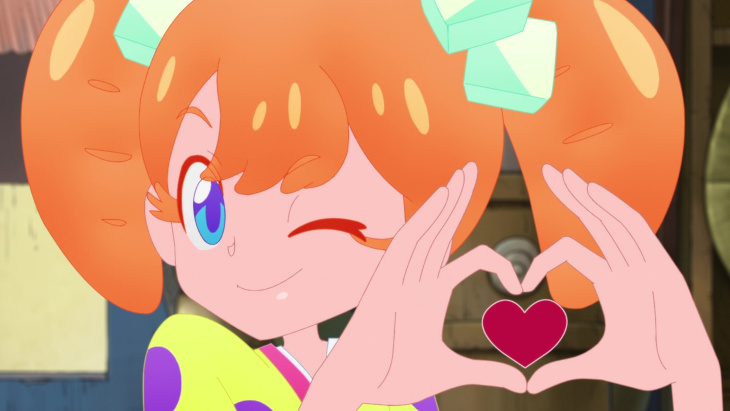
Science SARU’s visuals have yet to leave me unimpressed, but I will say the vision seems less cohesive in Yurei Deco than it was in the series helmed by Maasaki Yuasa. My initial take was that the bright and colorful visuals were designed to highlight the dissonance between the vibrant but superficial world of Tom Sawyer and the more insidious truth-dictating intentions of the Consumer Center. However, this doesn’t seem to be the case as every aspect of the world possessed at least some of those psychedelic qualities. I was trying to figure out how to describe this show to someone, and I ultimately settled on instructing them to, “Imagine the stories of Mr. Robot and Dennou Coil were mixed together, and then layer the aesthetics of the Teletubbies on top of that.” Roughly half of the show’s story is devoted to case-of-the-week episodes, but with seeds of overarching plot sprinkled throughout. This structuring feels reminiscent of older anime like Witch Hunter Robin or Ghost in the Shell: Stand Alone Complex, but it feels a bit odd in a single-cour show. There’s nothing inherently bad about this approach, but I can’t argue that any of the week-to-week cases stuck with me and with only 12 episodes it accentuates the series’ meandering qualities. The music is good, and while I didn’t watch the opening and ending every time (or even most times), they were at least memorable. Ultimately, Yurei Deco wants to say something profound and brushes against pretension quite often, but despite its aspirations, both its visuals and themes ultimately feel superficial.
Before I wrap up, a few Notes and Nitpicks:
- I saw that Masaaki Yuasa was listed as a creator on Wikipedia, but as far as I can tell, his involvement was limited to aiding with the original concept. So, the one element that I consistently praised is also the one detail that Yuasa had a hand in…
- Dai Sato has had a diverse career, but the more I look at his filmography the more I see connective tissue within the themes and styles, for better and for worse. Admittedly, my recollection of the shows and episodes he contributed to is often shaky at best, so those impressions may not have a strong basis.
- There is a solid chance that both my seasonal wrap-up reviews for the summer season and my First Impressions reviews for the fall season will be truncated. I’ve taken on a new position, and while I’m going to aim to at least keep up with a few titles, I wouldn’t be shocked if they ended up falling by the wayside this season. I doubt anyone was on the edge of their seat regarding that (except maybe Deadman, since he needs to check each article before posting and I think I wear him out), but figured I should mention it anyway.
- Yes, there is a character named Watson who dresses up like a cat and never speaks. No, this is never explained.
- I’ll often try to decide on an ‘award’ to provide a show. I find it’s a fun thought experiment to determine what stands out about a series and encapsulates the viewing experience. I thought about this for a while, and Yurei Deco is most deserving of the seasonal award for “Most Squandered Premise.” That sounds harsh, but it’s what I kept coming back to.

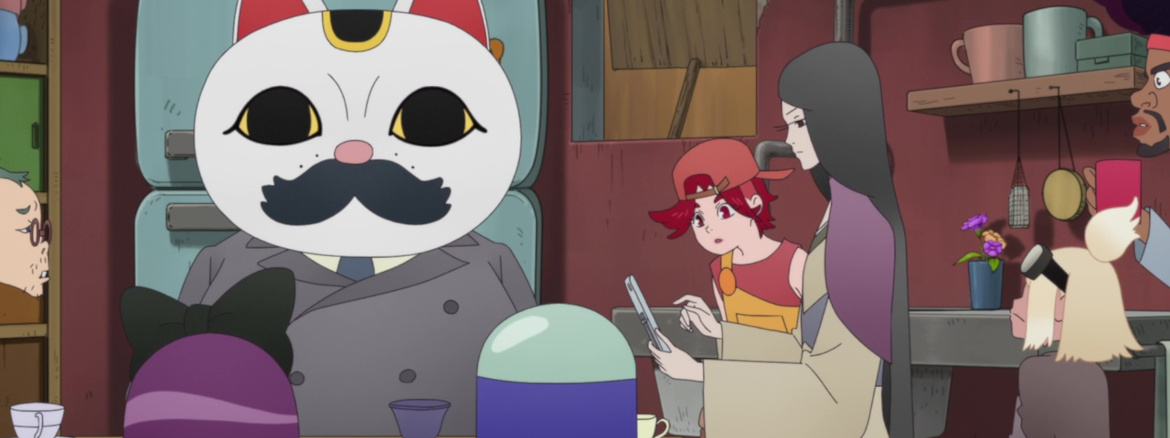


Add comment